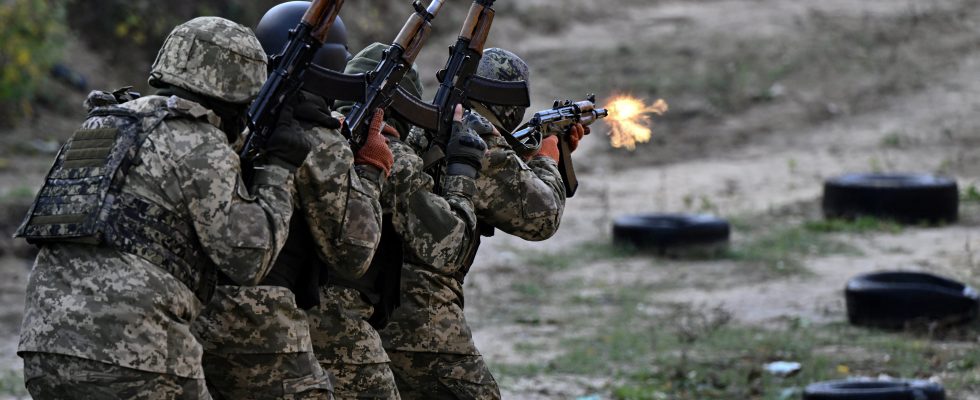Russian volunteers, sometimes without any military experience, ready to wage war against their own country. This is the fate of the “Siberian battalion”, whose fifty soldiers recruited by Ukraine could very soon join the Kiev army on the front.
This is not the first time Russians have fought alongside Ukraine against their home country. Two independent groups, the Russian Volunteer Corps, close to the nationalist far-right, and the Russian Freedom Legion, were particularly notable for having led incursions into the Russian region of Belgorod. But with this “Siberian battalion”, it is the first time that fighters from Russia have been directly integrated under contract with the regular Ukrainian army. The latter thus swell the ranks of the Ukrainian International Legion, which brings together foreign volunteers.
On condition of anonymity, the spokesperson for the International Legion did not specify to AFP how these Russian volunteers managed to enter Ukraine, even if these fighters often pass through third countries before being able to reach it. A process which is beginning to take shape: this same spokesperson was able to assure AFP that these were “not illegal crossings” nor prisoners of war forced to go to the front. Before adding, not without irony, that he did not bring his Russian recruits “in car trunks”.
Siberian ethnic minorities
The heterogeneous profiles of these fifty soldiers testify to the diversity of those ready to oppose the Kremlin even on the front. Within this “Siberian battalion” there are long-time opponents of the Putin regime, such as Ildar Dedin, a historic opponent already imprisoned in the past in Russia, or Alexeï Makarov, a former official of the National Party. -Bolshevik, banned in Russia in 2007. We can also find more common Russian citizens, like “Gandhi”, a 41-year-old man from the Moscow region, who explained to Bloomberg having “felt that as a Russian I was responsible for this situation. I know I may be killed in the first fight, but for me it is much more frightening to think that I am complicit in the evil that is coming from my country.”
But this battalion is mainly made up of numerous volunteers from ethnic minority groups in Siberia, such as the Yakuts or the Buryats. Their inhabitants, proportionately very targeted by the mobilization in Russia, many have left Russian soil since the start of the war in Ukraine. Joining the Ukrainian army then represents for them the opportunity to fight against “Russian imperialism” with the hope, in the event of kyiv’s victory, of also being able to then gain their independence. “Since Tsarist Russia, when we were colonized, they destroyed our culture, our language and our traditions. It was Russification, pure and simple,” told to Reuters Gennadiy, a young man of 29 years old. The latter chose the name “Buryat”: a reference to his country of origin, Buryatia, on the shores of Lake Baikal in Siberia.
“We must liberate Ukraine”
Another fighter from this new battalion, calling himself “Gretcha”, also told AFP about his journey. Born in Crimea, a Ukrainian peninsula annexed by Russia in 2014, he lived mainly in Moscow, where he was a medical assistant. “We must liberate Ukraine, the homeland where I was born in Crimea, that’s my dream,” says the man whose political views are “more liberal than in Russia currently.” The one who now fights for the kyiv army left Russia in 2022, and then sought to enter Ukraine. “At the beginning, there was no organization, there was no information on how to do things,” he says today. After staying in visa-free countries for Russians, often living in a tent, he eventually found an organization called Civic Council, whose website recruits for the Siberian Battalion, in Warsaw.
In a sandy ravine near Kiev, this new battalion was able to benefit from intensive training by the Ukrainian army, where around twenty international journalists were able to meet them. It is of course not 50 soldiers who will turn the conflict over at the front. But they are a major asset for kyiv in exposing to the world a certain decay of Russia, whose own citizens now no longer hesitate to join the enemy army.
